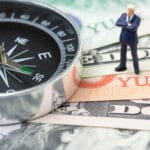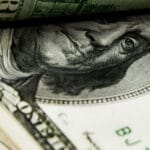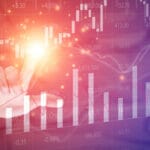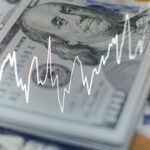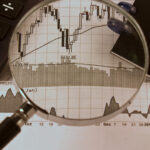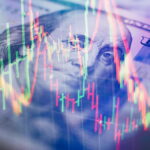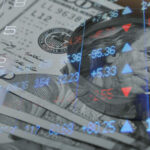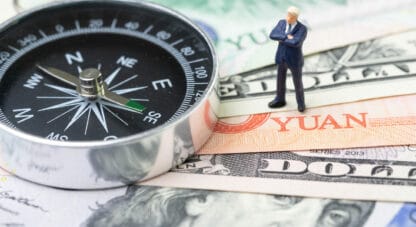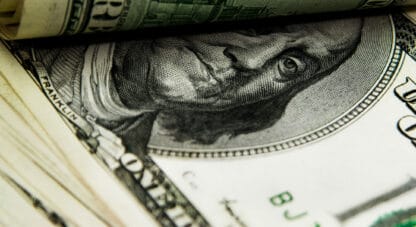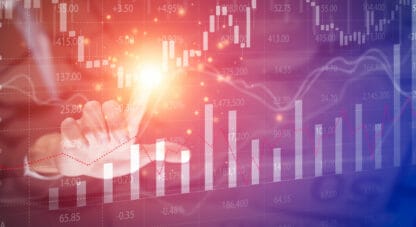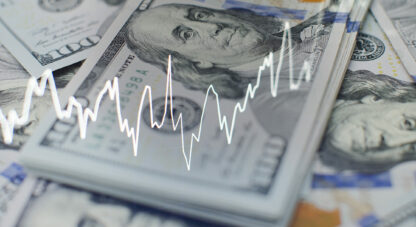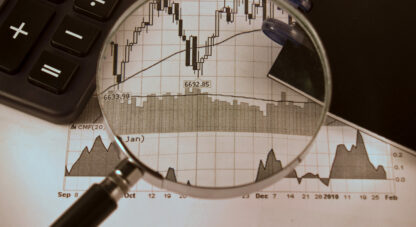Podcast: Play in new window
- 10 years of an everything bubble - Is that over now?
- Fed Chair Powell not an academic & is worried about inflation
- Fed has backed away from easy money, next the ECB, leaving only easy money Japan
The McAlvany Weekly Commentary
with David McAlvany and Kevin Orrick
“China and Germany will sell you hundreds of billions of dollars’ worth of steel and put you out of business, but then you can go over there and get them to do print default swaps on sovereign debt in Italy and Portugal. That’s what was going on. And now we have enough people who have understood that we have real problems here. And you’re right, we’re making an adjustment and it’s going to hit other countries.”
– Bill King
Kevin:As we talked about last week, we have Bill King on the show today. Usually after a Fed action, and especially after what Draghi talked about last Thursday, we wanted to have Bill King on because he looks at the tick-by-tick types of changes in the market. Honestly, after 40, 45 years of experience this guy has had to learn the hard way how to work in the market.
David:But there is a contrast between knowing the significance of what is happening in volumes and with the internals of the market, and as you say, a tick-by-tick awareness of behavioral change, Bill brings something else to the equation here, and it is that he sees the big picture changing, and he has enough time in the markets to know what some of the zeitgeist shifts are, the major world view pictorial changes, whether it is politics, geopolitics. I think that gives him a significant leg up.
Kevin:I would call him a street smart historian. He is street smart. You’ll hear it when you listen to him. He is a regular on the show. But this conversation is probably going to go long enough, we will break this into two programs, so this is Part I of the two-part show. Be sure to listen next week for the rest of it.
* * *
David:Bill, great to have you back with us on the program. In the last week or so we have had a lot of activity with the central banks, both the Fed and its announcement of taking rates one step higher, and then the ECB intimating some tightening as well as we move toward year end. So rates and the tightening cycle. Again, last week the Fed raised rates. You have the old adage: Three steps and then a stumble. Here we are with seven. Are we dealing with new rules, a new era, or maybe just a new step sequence? What do you think?
Bill:I don’t know if it’s new rules in a larger context, it’s probably new rules for the people that have only had ten years or less experience in the industry, or in managing their own money. That’s the problem. We used to have normal cycles. If you go back historically, they always talked about the four-year business cycle. Some would also see a three-year and they would lay some together. And they would correlate it with the political cycle.
And obviously, it had to do with central banks. Central banks raised rates when they thought, usually, two things – if inflation was picking up or they saw the inventory cycle picking up. And then of course everything got distorted and perverted over the last 20-30 years led by Alan Greenspan who just thought he could generate prosperity for everybody by juicing the stock market and assets up. And then of course Bernanke continued that, as did Yellen, and now we have a difference.
So I think part of this is you had ten years of a run-away bull market. Some people call it the “everything bubble,” the bonds, the whole thing. But the bonds have been reacting for over a year. You can just go back and look at charts, how they’ve been turning up. And people really weren’t paying that much attention because the stocks kept going up. But what is interesting, if you do look at the stock prices, 2016 things started rolling over. There is no question. And you could look at longer-term charts, into the weeklies and the monthlies and the S&P and everything, it was ready to correct and go down.
Then of course what happened is we had this major disruption, and that is not pun intended, when Trump won the election. You had this surge, and then you had this mania about the tax cuts, and that really pulled stocks out of harm’s way. Again, you can go back and watch, take a technical look, stocks were in big trouble at that time. And you could see what has happened on other charts, in commodities, or whatever, and now we’re going through, after that surge since January, we’re kind of going through a consolidation in stocks because enough people are figuring out what is going on.
And that is that the Fed is being serious about raising rates. People were talking before, is it going to be two or three, then it became is it three or four rate hikes in 2018. And then in the first quarter we had some weak economic data and everybody started saying, “Oh no, there’s only going to be three.” And if you looked at the Fed Fund futures they were projecting a very small chance of a hike in December.
Now, what is interesting is that the U.S. economic bean counters, besides their usual craftiness, have had real difficulty since 2008 because the seasonal adjustments, especially for the first quarter, because remember, everything hit the fan and it started falling apart when Lehman went down in September, but it was really the fourth quarter in 2008 when the whole system just went to hell and we were really at the door, the deflation, and just everything, so gold just collapsed – everything collapsed, except the bonds ran up. And that continued.
The stocks finally bottomed, I believe, in February of 2009. The economy bottomed a little later. But the point being that you had such horrible GDP numbers and employment numbers in the first quarter that the seasonal adjustments were distorted for a long time.
Now, if you remember, as we went forward a few years, remember we had the polar vortex, then we had another problem, the snow storms. And you kept getting these horrible Q1 GDP numbers. And it has been continuing for a while that we get really ugly GDP and Q1.
And then all of a sudden things pick up in the second quarter. I’ve been saying this in our letter here, as you look at the retail sales and all these numbers that were really soft and Q1 didn’t mesh with what you saw in consumer sentiment numbers. You also didn’t see it with some of the tax data that was coming through.
Now all of a sudden today we get this big boost in retail sales for May, double what was expected, 0.8. Ex autos it was even stronger, 0.9. And if people have been paying attention this is what we have been seeing the last few years. You’re getting soft Q1 readings in the economy, then all of a sudden it starts getting boosted in Q2 and the rest of the year, and I’m convinced it is because it has the seasonal adjustments all messed up.
So with that, what we’re getting now is you see the stock market reacted a couple of months ago where it started rallying. We peaked in late January, everything started rolling over. The only thing that ran up was the NASDAQ because people ran to the FANG [Facebook, Amazon, Netflix, Google] stocks and the uber-capital tech stocks, and that pushed those to all-time highs. And then we had the Russell going up because that was where you hid if you were worried about trade. You knew the big multi-national Dow stocks would have a problem if Trump was having this trade fight, so you ran for that.
But the stocks by and large have been treading water. We got the rally, though, after we had that VIX crash in February. You saw it. You could look at the charts. Then we had a nice rally in April and May because the economy was picking up, or they thought it was picking up. At least the data was showing that. And now you’re seeing after people are starting to understand it, the second quarter is going to look very good, now stocks are pausing again, and maybe it’s because the good news has been digested, with North Korea, also with the economy.
But what happened with the Fed minutes yesterday is it put the fourth rate hike this year, December, firmly on the table. Before, people were questioning that because of the downturn, and some were even questioning the September hike. Most people thought the Fed was locked in on June because they had made such a big deal. But now that the economy is picking up, and as today’s retail sales grow, most economists are all saying this is consistent with 4% or higher GDP growth with retail at consumption numbers that have been showing up.
So now you’re going to have, more than likely, four rate hikes. In fact, now you’re at almost at 50% for December for the fourth hike, which is almost double what it had been just a couple or three weeks ago. So you can see what is going on, and that’s what the market is trying to figure out, even today. You can see these mixed markets the last few days, and we’re really just chopping around, trading sideways. You get a little burst here, a little burst there. And the thing you’re fighting also is you have a new Fed and what a very small number of people recognized yesterday is we know there is a tone change going on with rate hikes, and people are seeing that and they understand.
But they don’t understand you have a new chairman at the Fed – Powell. And I saw a few guys on Wall Street took some shots at him saying, “Well, he’s not an academic.” Well, my view is, thank God. We haven’t had a real Fed chairman since Volcker who was not an academic, he was a banker. We had the other three jamokes in there who were academics and they screwed up so bad it’s not funny. That’s what is interesting here with Powell. If you listened to him yesterday, a few people, in his remarks, saw the Fed and they are saying this is different.
Now, one of the things that is really different is this was a very brief communiqué, almost half of what normally is said. Academics like to run their mouths, we all know that, to try to show everybody how smart they are. This guy is not doing that. And this guy is concerned about inflation, and he is taking measured steps. So that’s another reason why people are saying, “Oh, okay, we’re going to get that fourth rate hike.” And now they are projecting three rate hikes in 2019. So people are starting, after the three doves we had – super doves, in all honesty – historic doves going all the way back to Greenspan who came in in August 1987. So you had 31 years of these guys.
Now you have somebody in here who, you can’t call him Volcker, but he is acting like a serious central banker that is not here to facilitate Wall Street, but is here with a plan for the future, an economic future, and he understands that you can’t really react at that, you have to anticipate, because you’re aiming at a moving target. This is long-winded, I understand, but I don’t think enough people in the market understand that this is a real change, not just because they’re hiking rates – they have done seven – but you have new stewardship at the Fed, and it is certainly giving the appearance of being a different sheriff than the previous three.
So I think that is why you are seeing, the dollar started moving up strongly in April. Again, this is part of the FOREX markets being usually the smartest market, understanding that the U.S. economy, the data was going to show better. I hesitate to say the economy is doing better because I think the economy is doing fine in the first quarter, it’s just the data was understating it and I don’t think the economy has really accelerated that much in the second, it’s just because with the seasonal adjustments and some of these other things, you’re norming it out. So you’re getting a stronger dollar rally, especially today because the ECB was so dovish on Thursday, and so was Draghi.
So you could see this building, and the surprise to me is that gold is rallying after the ECB with the strength in the dollar. That, to me, is kind of a condemnation of what Europe is doing. So very interesting. We’re seeing how the market is adjusting to new stewardship at the Fed, and if this keeps playing the way it is, somewhere the stocks are going to have to have a real reckoning because the ECB is … they are the main focus now for traders in the market. And they have been supplying, and the ECB’s balance sheet just hit a record because they keep doing the QE.
But at some point, and it appears that we’re getting it now, the Fed’s seriousness against the profligacy of Draghi and the ECB is starting to end. Now, the bigger concern, and again, it will probably start showing up in the fall, is that Draghi only has six months left. He’s done at the end of the year. Right now it looks like Weidmann or one of the Germans is the favorite to take over. If that happens, look out because they’ve been talking for years that they don’t like the negative rates. “You’re killing the German savers, this is not good for us politically, yada, yada, yada.”
And if that happens, that’s going to be a real problem. And we should know more when you get into the late fall, that critical time around August and November when stocks tend to retrench after summer rallies, because by that time we should have a better understanding who is going to take over at the ECB. That should produce a sizable reaction here in the market.
So, bottom line, right now with the Fed hiking rates, people that are patient, the smart people, the big money, the big private money and the smart institutions, understand that when the Fed is cutting rates and there is easy money, which was most of the last ten years, they are forcing you to buy something – stocks, coal, oil, real estate, baseball cards – they’re just forcing you. But once the Fed starts hiking rates, especially after they’ve done a couple of rates, as they’re moving rates up a bit, all of a sudden they’re paying you to watch.
So before you were being penalized, when you are holding cash and the rates are going against you. Now, you’re not being penalized as much, in fact, you’re getting up over 2% in six-month CDs and T-bills, etc. So now, all of a sudden you can be more patient. And you can see that. You can see it in the gold, you can see it some of the stocks. As this keeps playing, more people can have patience and wait and watch this play out.
David:As we watch the dollar strengthen in a rising rate environment, we reflect on the knock-on effects. And maybe there are some things from past tightening cycles that are relevant. But emerging market stress increases as the dollar has moved to the mid 90s. We’ve already seen that. What does it look like if the dollar accelerates to the upside and heads toward, say, 102, 103, that range? What does that spell for the emerging markets?
Bill:Well, it hurts because emerging markets, by definition, are in debt because they’re emerging – they’re developing. Just like a developing business, you tend to have a significant amount of debt, because you’re emerging. You haven’t built up the cash. And most of that is denominated in dollars. And that is why you saw, again, in the fourth quarter of 2008 the dollar went berserk because if you’re in debt, and you’re in dollar-denominated debt, you’re short the dollar. So people in dollar debt, when the dollar starts going up – this is about foreigners, not the U.S. people because your income is in dollars.
But the people in emerging markets, that means their receipts that they are generating, unless it is in dollars they can’t keep up with the dollar payment. They’re losing. So every time the dollar goes up 5%, their dollar debt is going up approximately 5%. And that is where the squeeze comes. It is a debt squeeze. And we see today, which is interesting to me in the last few weeks, and it is continuing, and hereafter the Fed and the ECB meetings, the U.S. big banks are getting hit.
If you remember, from the last two quarters you had the same fools on Wall Street that were telling everybody the market was going to go down 30% if Trump was elected and we were going to go into a depression. They were telling people, “Oh, you buy bank stocks when rates go up.” Which is funny because if you look, that’s when you’re supposed to buy banks, when rates go down. So what are they telling you? You always buy banks? And the banks are getting hit. And they’re getting hit pretty good and they’ve been struggling. They get a little rally here or there, pop up when they get at a wide divergence between other S&P groups, you’ll see some of the quant guys come in.
But you can see there is pressure on the banks. And that is very, very important. Because the stock market can go up for a while, but it can’t go up for a meaningful period of time when your financial stocks are deteriorating. And they are. I think we produced a chart a week or so ago showing this enormous spread between the FANG stocks and the bank stocks. The FANGs, again, are the trading sardines. They also have some safe haven play because they have so much cash they act like convertible bonds.
But with the banks deteriorating they’re telling you just what you alluded to, that there is something going on with emerging markets and other people that are in debt. Again, when the dollar goes up people in debt are getting squeezed. And that is what it looks like is happening. There is some concern in the banking sector about what is going on. So you did bring up a great point about emerging markets and how this fits in with the dollar rally. It does put stress on people that are in dollar-denominated debt.
David:So ECB has a couple of transition points. One, if September is slowing of purchases, and then by the end of the year there is a cessation of purchases, as Draghi has recently said, first of all, who is going to be floating all boats? Is the Bank of Japan sufficient to do that? And does this really signal the end of a decade of easy money? Monetary policies have been a part of the attempt to put us on a solid footing. Are we to assume that the global economy is robust enough to handle tightening with no ill effect?
Bill:Well, you bring up a good point here because with the ECB communiqué, what Draghi did today, it leaked out a few weeks ago. Some ECB officials said, “Look, enough of this. We have to address this QE.” It was scheduled to end in September and when we addressed this almost a year ago, when they talked about it, the markets cratered and it scared the heck out of them, so they said, “Well, we can’t even talk about what we will do with QE because we’re so fragile.” When you think about it, it’s so stupid, but it’s also scary if you’re that fragile that you can’t even talk about when we might end QE.
And that’s the thing. If the data is okay – that is, again, the qualifier – we’ll end the QE in December. Which means they extended it three months. So the ECB was more dovish. They said, “We’ll extend it by 15 billion euros,” when people thought it might be only 10. And they also projected rates won’t go up until summer of 2019 when people thought it would be Q1 or Q2. And they also lowered their GDP projection for this year to 2.1 from 2.9. Then Draghi gets up and everyone expects him to be dovish, which he was. The first thing that really struck people was that he said the ECB did not discuss when to hike rates, which is unbelievable when you think about that. He also said you still need significant monetary stimulus.
So you put all this together. And then he tried to talk out of the other side of his mouth, saying, “This slowdown we’re having is only temporary. There are just some special factors, and there is some uncertainty about trade, and there are some supply constraints.” But the data in the eurozone has been really deteriorating, and just a couple of days ago you had the industrial production down 0.9% which is more than double what they were expecting. We know that Italy is a problem, Spain, Portugal, you could go through that whole list. That’s not a surprise in Italy.
What people fail to understand is, you go back to 2004-2005, in that area. Germany was in deep trouble. And we all know Germany is sustaining the whole eurozone. You did get some help from the northern countries when oil went berserk, and Norway, Finland, and money poured into them and their sovereign wealth funds because the energy went berserk there in 2010-2011. Money poured in. But Germany by and large has carried Europe. And the reason they went from a basket case to this big engine was because China and other emerging markets purchased machine tools like crazy from them because they were industrializing.
Now the problem has become, and there are a few economists and a few other people, analysts, that have pointed this out over the last six months or so, that China and emerging markets went from their biggest customers to their competitors, because once China bought all these machine tools and all this know-how and technology, just like they do with the U.S., they turn around and start producing those goods and now all of a sudden Germany has a problem. First, the exports of the machine tools were slow, but now those countries are in competition with you.
So they have that problem, they have the migration problem, they have the sovereign debt problem. They’re having their political revolts, as you keep seeing, things keep popping up. And then they had Brexit and now the European solons have been moving to stop that. Spain – independence – Catalonia. You saw this stuff here with Italy when the [unclear] party took over, couldn’t form a government, and they are maneuvering that. Just these constant problems in Europe that Germany can’t paper over. Now Merkel is having problems because she is still trying to go soft on the immigration and the conservatives are starting to threaten to pull out of her coalition.
So Europe is in real trouble. You can see their people are trying a populist revolt but they haven’t had a Trump appear yet that is going to come in and be a disrupter and restructure Europe or the individual economies. So Draghi has always thought all along – the little boy with his finger in the dike – he is going to be gone soon. So you are absolutely right bringing up Europe. I think Europe is the real problem going forward for the next six months. As to where could something ugly pop up that could be a catalyst for global turmoil, I think you have your finger right on the right pulse.
David:So, back to the six-month transition because you’re really talking about the possibility of a different kind of stewardship at the ECB, just as we are experiencing new stewardship at the Fed. And if it is Weidmann, you’re really not talking about a consistent alignment of Brussels and Germany, now you’re talking about going your separate ways, and it changes dynamics pretty considerably. So keep that in the backdrop for this next question because you have trade and tariffs and things that are emerging that are, again, five different versions of political revolts, whether it is in Europe, or here in the United States circa 2016. But does that trade and tariff fight erode the deflationary effects that we have had from globalization? And does that impact and reintroduce, in the next era, a more strongly inflationary theme for the years ahead?
Bill:What’s the positive impact? See, that’s the problem. The positive impact on what? On IBM? On J.P. Morgan? Because globalization has killed the average American. That’s why Trump is here. And it’s doing the same thing now with the people in southern Europe. So from a Wall Street centric point they talk globalization. I always get a kick out of this. I’ve been hearing this globalization since I have been in business since 1974, and I’m thinking, didn’t Marco Polo start globalization?
David:(laughs)
Bill:If you go back, it’s been going on – the Knights Templar were the first international bankers – and that’s what’s going on here. This whole point of what was the benefit of globalization? There are winners. The point, everybody tries to say is, “Well, they make lower costs for their goods.” Yes, but you throw people out of work. They’ve been looking at one side of the coin. This was the thing, almost Darwinian, with selective advantage people would produce. The problem is, we threw those people on welfare, or jobless claims, but when they get exhausted they go get a doctor to write up a disability.
So we lose jobs, we put people on welfare, or some freebie from the government and they can keep buying goods. That’s what has perverted the classical theory because if people all fell out of work they couldn’t buy goods from China and Japan and the currencies would readjust. So what do we do? We give people the money to buy the goods. And that’s what Trump understands. That’s what the Bushes and the other elitists were saying, “Oh, that’s okay. We can keep lowering the price of goods.” Yes, because we keep throwing people out of work and we keep giving them the money to buy the goods. So you don’t get the natural adjustment. That’s what’s been going on for four decades of these trade problems.
So that’s why we have 20 trillion in debt, because we keep taking money to give people so you can keep buying stuff so you can go to Walmart and buy all the Chinese goods, or you can go to wherever you’re going – Costco or whatever. That game has to end. And the difference between Trump and the other people that have been in there is that they saw the problems and they said, “Let’s slow walk and let them blow up on somebody else’s watch.”
One of the things Trump did is he looked at the North Korea problem that started with Bush I, and then Clinton gave them money to be good, and then same thing, Bush II, Obama, just every time they rattled their saber we gave them more money. Trump looked up and said, “My God, they’ve got nuclear weapons, they’ve got missile technology. We’re going to have a real problem now.”
Now, if we go in, which we might have to do, and we have a nuclear exchange, this is really bad. However, it is going to be worse later if we don’t address it. We don’t know, we’ll probably learn years later when somebody writes the book, when Trump and his generals, mostly Mattis, started moving certain U.S. offensive military assets, and China’s satellites and Russia’s satellites started seeing this, plus whatever they intercepted, plus when Trump was talking about evacuating all U.S. citizens from South Korea, China and Russia, as well as North Korea, understood that it was going to happen. And then all of a sudden they went from, “We’re going to shoot missiles at Guam and Hawaii and on your West Coast,” to “Okay, let’s have a little peace powwow.”
That’s the difference, why all of a sudden the dollar – that’s part of this whole thing – nobody wants to address the problems. Not Japan, not Europe. But Trump, for the first time since Reagan, said, “You know what? It’s bad. We’ve got to do something, it’s bad, but it will be worse later.” Which is what Bush I should have done with Social Security and Medicare when he had an 85% approval rating after the first gulf war. But nobody wanted to do this.
So when you get back to this globalization, he is addressing this. “We have an 800 billion-dollar problem. And I’m addressing it now. And you know what? We can’t lose because we’re the ones running the deficit. And if we’re going to take some short-term pain, just like we had to take this confrontation with North Korea, we’re far better off doing it and taking it now, because it will be much worse later.” And that’s starting to happen. And maybe that’s why the markets are getting cautious because if you really think through this, Obama said it and Trump said it. The most urgent problem the U.S. had was North Korea with their nuclear program and missile technology.
So once you get that done, where do you go next? Probably Iran. And when that starts playing out, then you’re going to go for trade because once you start taking care of imminent national security threats, you start moving on those, the economy is doing okay now, so you can get the security threats out of the way. But he is going to address this trade problem. And it is a problem. And you can’t keep doing this or you are going to blow up. And a lot of that debt you are looking at is because people aren’t working. And again, the fallacy that all of these classical economists are making about the benefit of globalization is that they are telling you, the only benefit – the onlybenefit – they can throw out there is that it gives you lower cost goods.
But what if you don’t have a job? The U.S. says, “Okay, fine, we’ll give you free money to keep buying those goods and services so our big corporations don’t go bankrupt. We’ll have to make the adjustment.” And that’s the problem. Forget the debt side. You’re destroying society. I think it was Tucker Carlson who did a whole thing about how you have destroyed the male population of the U.S. Where you are as far as family formation, males taking jobs, males going to college, males going into trade, because we’ve said “No, you don’t have to work, you don’t have to be responsible for your family, you don’t have to do this, that and the other.”
And that’s the other side of globalization that they don’t want to talk about, why not having a job, by just taking the freebie and keep buying the goods from big U.S. corporations is okay. And that’s another impact that Trump and his people understand. So I get that Wall Street wants to talk about globalization and it is always one benefit. “Oh, you have cheaper goods. Aren’t you happy?” Well, I would rather have a good paying job and have to pay a little more for tomatoes, or cars, or whatever, than watch the debt go crazy and all of a sudden I’m paying – which I was, $2,000 a month for health care, but now that I’ve gone on Medicare it’s like a quarter of that. So I’m getting a freebie now. But Medicare is going to blow up in 2026, so you can see what the major problems are and Trump is trying to get to that.
I know this is long-winded, but it just fries my backside when people say “the benefits of globalization.” There is really only one they can point their finger at but they will not talk about what it does to the economy and what it does as far as displacing workers, blowing up your debt, and also destroying your culture.
David:Those are real factors. When we look at the amount of monetary policy and the amount of credit creation that has occurred in this particular era, I think one of the reasons I’m looking for a globalization plug-in is because there hasn’t been the inflationary impact that we would have had in the 1960s and 1970s. So debt monetization, etc., etc., and is it possible that the games of labor arbitrage and things like that have somehow taken the edge off of inflation, where if we do move toward a more nationalist priority, getting the jobs back, and yes, that means people have an income, and yes, people are paying more, doesn’t that reverse a 30-year trend of things getting cheaper, now things have to get more expensive, and now all of a sudden all of the central banks of the world are looking at a totally changed landscape?
Bill:It depends on your country, and it depends on what you’re going to allow your currency to do. That’s why Reagan was popular. First, the incomes went up, he eventually cut taxes – people think he came in and cut taxes. It took a while. But what happened with Reagan is the inflation just absolutely collapsed and the dollar got strong. So the average guy all of a sudden had enormous amount of more purchasing power.
So if the U.S. dollar gets strong and people have jobs, the goods coming in here are going to get cheaper. And you’re getting more purchasing power, people get more bullish, better sentiment, etc. And some countries are going to think ahead on this. And that’s probably going to be Germany, Europe, China to some degree, Japan. You’re right, there is going to be a readjustment on this global order.
And that’s what Trump is saying, “You’re not going to come in here and keep throwing your garbage at us. You’re not going to keep subsidizing your steel.” Because he also makes the point here that Wall Street never did, is that China has so much excess steel capacity, and aluminum producing capacity and you throw in the emerging markets, or whatever, you could put a lot of industries out of business, we’re done as a country, because we cannot have a military base if we don’t produce steel. In the time of a crisis, if these factories can’t immediately start producing what we need, we have a national security crisis. And that is the other reason why he is doing this and adjusting this.
And that’s why he wanted to put in steel, aluminum and these types of industries, because he is smart enough to understand. The globalists would say, “Well, we’ll just keep importing steel.” You have a war with China and they’re going to give you steel? Maybe the U.S. was stupid enough to do that to Hitler and Japan in the 1930s, throwing them our scrap steel so they could [unclear], but China is not going to do that, and I don’t know who else is going to do that for us.
So that is the other side of this thing, winding back onto the globalization. You can’t just say, “Well, we have a service industry.” That was the other excuse. “Well, we have great services.” What do you mean, trading mortgage-backed securities? Doing credit default swaps on the subprime? How did that work out for everybody? Is that your service industry you’re talking about? China and Germany will sell you hundreds of billions of dollars’ worth of steel and put you out of business, but then you can go over there and get them to do credit default swaps on sovereign debt in Italy and Portugal? That’s what was going on. And now enough people have understood that we have real problems. And you’re right, we’re making the adjustment and it’s going to hit other countries.
David:There is a fascinating media presentation, of course, because in terms of the trade tariff stuff, Trump is a total chump. And then on the other side you have the GOP, who is just as happy to lob Molotov cocktails at the White House as the Democrats are. And it’s just fascinating. Why does Trump catch it from every direction, if strategically he is actually doing some things that are beneficial to the United States? You said first Korea, then Iran, then you tackle trade. These are things that give us a strategic advantage.
Bill:Well, I know we talked about it last time I was on, but the thing that struck me with Trump, I never liked his persona, I didn’t like the way he leads his life, etc. and most people don’t. But what was interesting to me is that since Reagan people said, “Gee, we should have a businessman instead of these politicians. We’re sick of politicians.” And the thing is, these politicians – I always watch the movie, Charlie Wilson’s War, when it shows up, but they were talking about people electing you. “My people don’t elect me. It’s the big donors that get me elected.” That has been the wisdom now for decades in Washington. “I need the big electors. I need the big hedge fund money. I need the big Hollywood money, the East Coast money.” And it worked. They were running the country. “I need those donations, I need the big bank, I need Wall Street’s money.”
Trump came in and said, “No, I don’t need that anymore, and I know why I don’t need it because I can use these other things.” So he is not beholden. But the thing that dawned on me with Trump is, politicians learn that they have suck up to the handful of people that give them the big money, and that has been, by and large, the big industrialists, the big banks, and they work for the globalization because it benefitted them. No matter what it did to middle America, they didn’t care.
But Trump was a real estate developer and the one thing Trump knew is he couldn’t be an ideologist, or hunkered down with an extreme. Trump had to do research. If you’re going to put your own money, hundreds of millions, if not billions, prior to you going into debt, you have to do your research, and that means you have to understand what the consumer wants, what the demographics are, etc. Otherwise, you blow up – you’re gone.
So the thing that dawned on me is, Trump was going through this campaign – actually, it was the primary process – every major issue Trump was on the side of most Americans. He was against illegal immigration, he wanted the…, all the things that the political establishment and the mainstream media were against, and middle American was for. There wasn’t a single issue that he was on the wrong side of. He went from last in the 17 or 16-field GOP, to the top almost immediately, as soon as they started the debates, because he went out there and people said, “My God, you’re saying what I believe, and the other guys are knocking you for it.”
And you can see that that is the secret to Trump. He is on the right side of what the people want. I have no idea what he personally believes. He doesn’t care about the big donors, he doesn’t care about the establishment. He doesn’t care what these other people think. He just keeps looking at, what is the data? That’s how he got rich and made his money – what do people want, doing your research, checking the demographics, and then giving the people that vehicle. That’s what he is doing with his policies now. That’s your point about the establishment. They were locked into the big money people – the big banks, the Koch brothers, Soros, the big hedge fund guys – what they want. Trump said, “That’s wrecking the country and we’re going the other way.” And he’s going for Main Street over Wall Street.
Now, he gave Wall Street the big break early with the big tax cut. And he said, “That’s it. That’s all you’re getting from me, and that should be enough.” That set off a bunch of things for consumers. Really, more importantly, it helped the small businesses. You see the small businesses where he is really getting the big boost, in the sentiment, but also cutting rules and regulations. And that is the undercurrent in the economy that people have a hard time getting their hands on. Everybody can see the GMs and the Apples, but it’s that small start-up business, the people that you really can’t measure except by tax receipts as they start coming in. But that’s where his strength has been, and continues to be.

